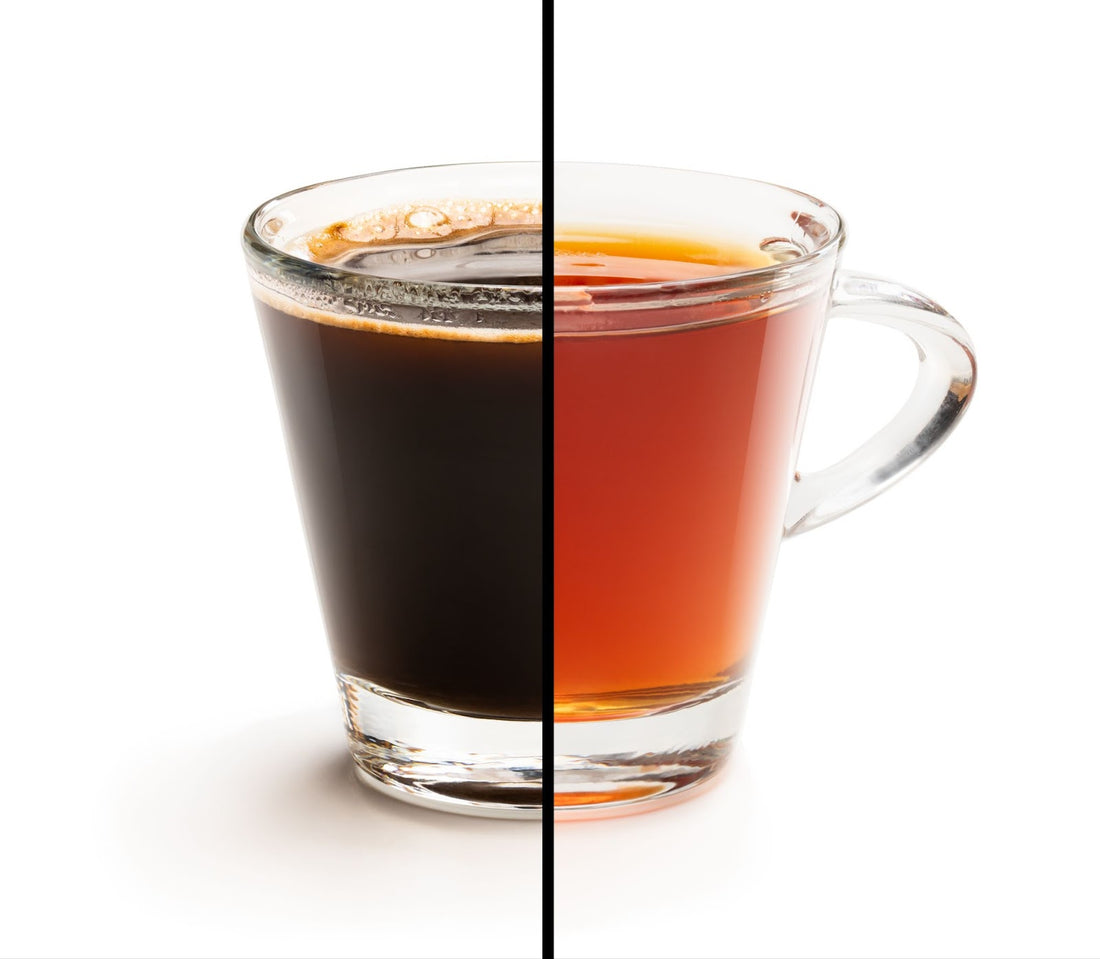Are you a coffee person? Or do you find energy drinks better?
Both have caffeine and are a big hit for people who are busy with their daily lives. Many rely on caffeine to kick-start their day or power through a long afternoon.
While coffee and energy drinks both offer a quick jolt of energy, they come with their own set of differences, from ingredients to effects on health and productivity.
What are the key components of coffee and energy drinks?
Coffee, a classic beverage enjoyed worldwide, is primarily made from roasted coffee beans and water. Its key components include caffeine, which acts as a natural stimulant, and various antioxidants and nutrients found in the coffee bean.
Energy drinks, on the other hand, are typically formulated with a combination of caffeine, sugar, herbal extracts, amino acids like taurine, and B-vitamins. These additional ingredients are often marketed as providing a quick energy boost and enhanced mental focus.
While both coffee and energy drinks contain caffeine, they differ in their overall composition and potential health effects due to the additional ingredients found in energy drinks.
How does the caffeine content of coffee compare to that of energy drinks?
The caffeine content of coffee varies depending on factors like the type of coffee bean, brewing method, and serving size. On average, an 8-ounce cup of brewed coffee contains around 95 milligrams of caffeine, although this can range from 70 to 140 milligrams or more depending on various factors.
In contrast, the caffeine content of energy drinks tends to be higher and more standardized.
A typical 8-ounce energy drink can contain anywhere from 70 to 200 milligrams of caffeine or even more in some cases, depending on the brand and formulation. Energy drinks often tout their high caffeine content as a selling point for providing a quick energy boost, but it's essential to be mindful of individual caffeine sensitivity and consumption levels to avoid potential adverse effects.

Is there a difference in the duration and intensity of energy provided by coffee and energy drinks?
These are disparities in the duration and intensity of energy supplied by coffee versus energy drinks.
- Duration of Energy: The sustained release of caffeine from coffee, due to its slower absorption rate, often provides a longer-lasting energy boost compared to the quicker spike and subsequent crash associated with energy drinks.
- Intensity of Energy: While energy drinks may deliver a more immediate and intense burst of energy due to their higher caffeine content and additional stimulants, the effects may diminish more rapidly, leading to potential fluctuations in energy levels throughout the day.
- Metabolism and Individual Response: Variations in individual metabolism and caffeine sensitivity can influence how quickly caffeine is absorbed and metabolized, impacting the perceived duration and intensity of energy from both coffee and energy drinks.
- Additional Factors: Factors such as serving size, caffeine content, and consumption habits can further influence the duration and intensity of energy provided by coffee and energy drinks, highlighting the need for individualized approaches to caffeine consumption.
What risks are associated with excessive caffeine consumption or the additives in energy drinks?
These are the potential risks linked to excessive intake of caffeine or the additives commonly found in energy drinks.
- Cardiovascular Effects: Excessive caffeine consumption can elevate heart rate and blood pressure, potentially increasing the risk of cardiovascular complications such as palpitations, arrhythmias, and even heart attacks in susceptible individuals.
- Psychological Impact: Overconsumption of caffeine, particularly from energy drinks, may exacerbate anxiety, insomnia, and jitteriness, leading to negative psychological effects and impaired cognitive function.
- Nutritional Concerns: Energy drinks often contain high levels of added sugars, which, when consumed in excess, can contribute to weight gain, obesity, insulin resistance, and metabolic disorders, posing long-term health risks.
- Interaction with Other Substances: The combination of caffeine with other ingredients commonly found in energy drinks, such as herbal extracts and amino acids, may interact unpredictably with medications or exacerbate underlying health conditions, highlighting the importance of cautious consumption and awareness of individual risk factors.

How do coffee and energy drinks affect hydration levels?
While both coffee and energy drinks contain water, their caffeine content can impact hydration differently. Contrary to popular belief, moderate coffee consumption does not significantly contribute to dehydration. However, caffeinated beverages like energy drinks can have a diuretic effect, leading to increased urine production and potentially affecting hydration levels.
Additionally, the high sugar content in some energy drinks may further exacerbate dehydration if consumed in excess. It's essential to balance caffeine intake with adequate water consumption to maintain hydration, especially when consuming energy drinks or caffeine-rich beverages.
What personal factors should you consider when choosing between coffee and energy drinks?
Several personal factors should influence the choice between coffee and energy drinks. Individual caffeine sensitivity and tolerance play a significant role, as some people may experience adverse effects like jitteriness or insomnia with high caffeine doses found in energy drinks.
Lifestyle considerations, such as dietary preferences, hydration needs, and existing health conditions, also come into play. Those with heart conditions or anxiety disorders may need to limit caffeine intake or opt for lower-caffeine options like coffee.
Additionally, factors like taste preferences, convenience, and budget can influence beverage choices. Ultimately, it's essential to assess personal preferences, health considerations, and lifestyle factors when deciding between coffee and energy drinks.
How can you incorporate both coffee and energy drinks into a balanced lifestyle?
Balancing the consumption of coffee and energy drinks within a healthy lifestyle requires careful consideration of their benefits and potential drawbacks.
- Moderation is Key: Incorporating both coffee and energy drinks in moderation allows you to enjoy their benefits without overdoing caffeine intake, preventing potential adverse effects such as jitteriness, insomnia, or dehydration.
- Timing Matters: Strategically timing your consumption of coffee and energy drinks can optimize their effects within your daily routine; for example, drinking coffee in the morning for a gradual energy boost and reserving energy drinks for moments when a quick pick-me-up is needed during busy afternoons or workouts.
- Hydration and Nutrition: Pairing coffee and energy drinks with adequate hydration by drinking plenty of water throughout the day helps counteract any potential dehydration effects, while also prioritizing a balanced diet rich in nutrients to support overall health and well-being.

FAQs
Here are the answers to your most pressing questions regarding their respective health benefits and caffeine content.
Is coffee healthier than energy drinks?
Coffee, when consumed in moderation, offers potential health benefits such as antioxidants and a lower sugar content compared to many energy drinks, making it a preferable choice for some individuals concerned about their health.
Does energy drink have more caffeine than coffee?
In general, energy drinks often contain higher caffeine concentrations per serving compared to coffee, but the actual caffeine content can vary widely depending on the brand and formulation, making it essential to check labels for accurate information.
Maximizing Your Caffeine Experience with Spearten Coffee
It’s evident that the choices extend beyond traditional coffee and energy drinks. If you prefer coffee, then Spearten Coffee stands out with our innovative approach, offering vitamin-infused coffee that not only provides a caffeine boost but also delivers added nutritional benefits.
By prioritizing quality ingredients and mindful consumption, Spearten Coffee caters to individuals seeking a holistic approach to their caffeine intake. Additionally, our coffee bundles provide convenience and value, allowing customers to explore a variety of flavors and formulations to suit your preferences.
Whether you're savoring the rich aroma of vitamin-infused coffee or indulging in our coffee bundles, Spearten Coffee offers a refreshing take on the coffee experience, promoting wellness and enjoyment with every sip.

